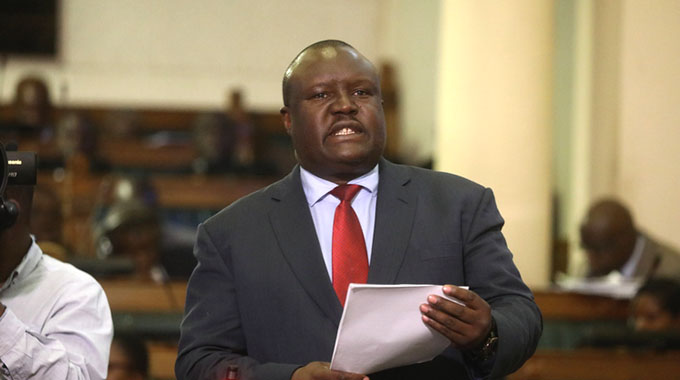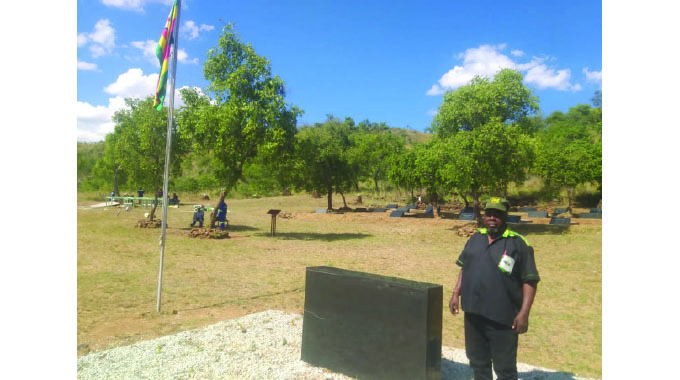‘We will not be held by our past’

Nqobile Tshili Bulawayo Bureau
THE Second Republic has been commended for tackling the emotive Gukurahundi issue head-on while creating a new political culture of tolerance following years of citizens suffering in silence with bottled emotions.
Before President Mnangagwa came to power in 2017, it was taboo to openly discuss the Gukurahundi issue.
Following Operation Restore Legacy that gave birth to the Second Republic in November 2017, President Mnangagwa’s administration is ensuring that the country comes to terms with some of its darkest moments.
In his inaugural speech exactly four years ago, President Mnangagwa said the country should not be held by the past, but confront it head-on.
“While we cannot change the past, there is a lot we can do in the present and future to give our nation a different, positive direction,” he said. “
As we do so, we should never remain hostages to our past.
“I thus humbly appeal to all of us that we let bygones be bygones, readily embracing each other in defining a new destiny. The task at hand is that of rebuilding our great country. It principally lies with none, but ourselves.”
President Mnangagwa also promised to deal with the polarised political environment.
Commentators yesterday said President Mnangagwa’s administration is walking the talk in promoting reconciliation and change the political culture, previously marked by polarisation.
National Council of Chiefs Matabeleland South provincial chairman Chief Masendu said since the coming in of the Second Republic, communities have been more open in discussing the country’s dark past.
“There are notable differences, especially looking at the Gukurahundi issue,” he said. “Citizens are now openly discussing Gukurahundi, which is very important.
“The President has encouraged citizens to speak out on the issue since he encouraged them to speak out on the matter. It’s important that people speak on what they saw, what they experienced and say how they want the issue to be addressed as it is now open for discussion.
“There are a lot of things that communities know, there are a lot of things that hurt people and some of them are still traumatised.
“To effectively resolve the problem, we need to openly talk about the issue and this is what is happening in communities.”
Chief Masendu said it was relevant for the traditional leadership structures to be at the forefront of resolving the Gukurahundi matter.
“As traditional leaders, we live with the communities and we are the first to interact with them on issues that affect them,” he said.
“They trust us and are more open when they engage with chiefs, village heads and headmen. We have a strong bond with the public and they openly relate to us on any issue that affects them.”
National Council of Chiefs president Chief Charumbira said within a few years of his presidency, President Mnangagwa has taken a bold move to resolve Gukurahundi.
“We do have demonstrable and practical efforts that President Mnangagwa has undertaken in ensuring that the country is united as a family,” he said.
“He took one great step which was to open up the discussions on Gukurahundi.
“In the old dispensation, talking about Gukurahundi was a taboo, you will be in trouble just being heard talking about Gukurahundi.
“But when President Mnangagwa came to power, he said let us all firmly talk about it and resolve it.
“He put up a framework that we get to the resolutions of the Gukurahundi issues by designating the National Council of Chiefs to start a process through traditional leadership.
“Resolving Gukurahundi is an issue that requires a values approach, a cultural approach and this can be achieved through the traditional leadership structures.”
Chief Charumbira said soon, chiefs will engage their communities on how they want the issue to be addressed before presenting the findings to the President.
He said once all the processes were complete, they expect some of the victims to be compensated, with Government also initiating development projects targeting the affected areas.
“The President is a game changer in terms of resolving conflicts in the country and it’s not only about Matabeleland, but all provinces,” said Chief Charumbira.
“He is trying by all means to bring everyone together.”
Government has already taken a stance to provide national documents to communities that were affected by Gukurahundi as some of them have been stateless.
A consortium of civil society organisations operating from Matabeleland region have also hailed President Mnangagwa for taking practical steps to solving Gukurahundi.
Matabeleland Collective leader Ms Jenny Williams said while relative progress has been made in addressing the emotive matter, more needed to be done.
“Matabeleland Collective recognises that there has been much dialogue with His Excellency, the President, who has shown much goodwill at a verbal level,” she said.
“Matabeleland Collective also acknowledges that great steps have been made setting up the process to support traditional leaders to take the lead and conduct village level consultations to prepare their individual road map towards addressing Gukurahundi.
“This is more than was ever done previously.”
One of the 2018 harmonised elections presidential candidates and Political Actors Dialogue (POLAD) principal Mr Kwanele Hlabangana credited President Mnangagwa for promoting tolerance within the political arena in the country.
“In terms of political culture in the country, things have changed drastically for the better,” he said.
“There is now tolerance and he is a listening President and he is different from his predecessor.
“He has been open to dialogue and not just about POLAD, but engaging all stakeholders in the country on issues of development.
“And we believe that with this attitude, our country can go forward. He has demonstrated that he is for development not politics divisiveness, but politics of engagement, reengagement and tolerance.”
Mr Hlabangana said through establishing POLAD, the President allowed divergent views to be mainstreamed.







Comments